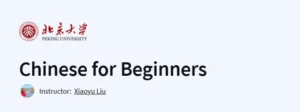English for Media Literacy
An engaging and practical course that offers valuable insights into media literacy, perfect for both language learners and media enthusiasts.
What you will learn in English for Media Literacy Course
Understand the concept of media literacy and its importance in the digital age.
Distinguish between facts and opinions in various media sources.
Analyze how gender and identity are portrayed in the media.
Develop skills to critically evaluate and interpret media messages.
Enhance English language proficiency through media-related content.
Program Overview
Unit 1: Introduction to Media Literacy
⏳ 4 hours
- Learn what media literacy means and how to improve your own media literacy skills.
- Evaluate your own media literacy level.
- Understand the role of media in our lives.
Unit 2: Identifying Facts vs. Opinions
⏳ 4 hours
- Learn how to identify facts and opinions in media content.
- Understand the difference between objective information and subjective viewpoints.
- Develop skills to critically assess media messages.
Unit 3: Social Media vs. Traditional Media
⏳ 4 hours
- Explore the differences between social media and traditional media platforms.
- Understand how information is disseminated through various channels.
- Analyze the impact of social media on public opinion.
Unit 4: Gender and Identity in the Media
⏳ 4 hours
- Examine how gender and identity are represented in the media.
- Understand the implications of media portrayals on societal perceptions.
- Develop critical thinking skills to analyze media content.
Unit 5: Final Project
⏳ 4 hours
- Apply learned concepts to analyze a piece of media content.
- Demonstrate improved media literacy skills through a culminating project.
- Receive feedback to enhance understanding and skills.
Get certificate
Job Outlook
Enhances language proficiency for careers in journalism, media analysis, and communications.
Provides a solid foundation for advanced studies in media literacy and communication.
Completing this course can bolster qualifications for roles requiring critical thinking and media analysis skills.
- Taught by experienced instructors from the University of Pennsylvania.
- Includes interactive exercises and quizzes for each lesson.
- Applicable to both academic and professional pursuits.
- Requires commitment to complete all modules for certification.
- Some learners may seek more extensive coverage of advanced topics.
Specification: English for Media Literacy
|
FAQs
- No, the course is suitable for intermediate English learners and above.
- It provides vocabulary and context explanations along the way.
- Focuses on improving both language and critical thinking skills.
- You’ll learn progressively, even if you’re not yet fluent.
- Media literacy teaches how to analyze, evaluate, and question media messages.
- Goes beyond vocabulary—focuses on credibility, bias, and intent.
- Helps you compare different sources and viewpoints.
- Strengthens both language and critical awareness.
- Yes, media literacy is valuable for careers in journalism, marketing, and education.
- Helps students in research, essay writing, and presentations.
- Improves ability to detect misinformation in professional settings.
- Builds strong communication and critical analysis skills.
- Yes, it applies to news sites, blogs, and social media posts.
- Teaches how to identify bias, persuasion techniques, and misinformation.
- Builds awareness of how digital platforms influence opinion.
- Makes you a more confident and responsible media consumer.
- Stronger ability to judge which news is reliable.
- Improved critical thinking when reading or watching media.
- Expanded English vocabulary related to journalism and media.
- Better skills in expressing opinions with evidence and clarity.





